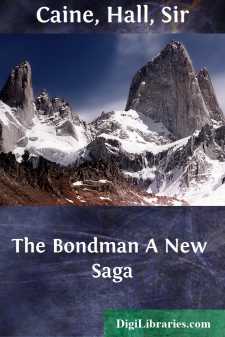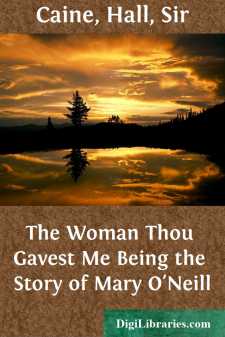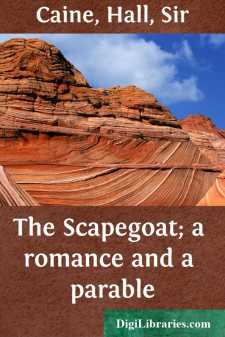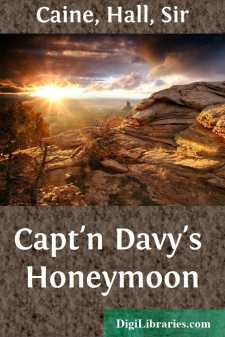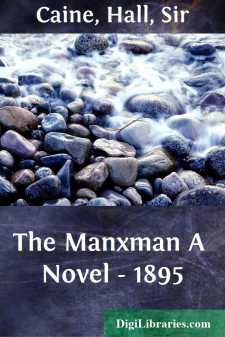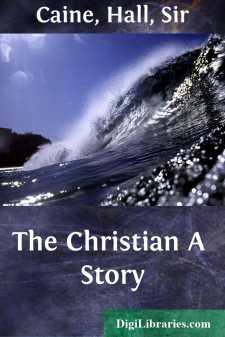Categories
- Antiques & Collectibles 13
- Architecture 36
- Art 48
- Bibles 22
- Biography & Autobiography 813
- Body, Mind & Spirit 142
- Business & Economics 28
- Children's Books 13
- Children's Fiction 10
- Computers 4
- Cooking 94
- Crafts & Hobbies 4
- Drama 346
- Education 46
- Family & Relationships 57
- Fiction 11828
- Games 19
- Gardening 17
- Health & Fitness 34
- History 1377
- House & Home 1
- Humor 147
- Juvenile Fiction 1873
- Juvenile Nonfiction 202
- Language Arts & Disciplines 88
- Law 16
- Literary Collections 686
- Literary Criticism 179
- Mathematics 13
- Medical 41
- Music 40
- Nature 179
- Non-Classifiable 1768
- Performing Arts 7
- Periodicals 1453
- Philosophy 64
- Photography 2
- Poetry 896
- Political Science 203
- Psychology 42
- Reference 154
- Religion 513
- Science 126
- Self-Help 84
- Social Science 81
- Sports & Recreation 34
- Study Aids 3
- Technology & Engineering 59
- Transportation 23
- Travel 463
- True Crime 29
Hall Caine
Hall Caine was a prominent British author and playwright in the late 19th and early 20th centuries, renowned for his novels that often explored themes of morality and social issues. His most famous works include "The Manxman" and "The Eternal City," which garnered significant acclaim and readership. Caine's storytelling, deeply rooted in his Manx heritage, left a lasting impact on Victorian and Edwardian literature.
Author's Books:
Sort by:
by:
Hall Caine
Proem. There is a beautiful Northern legend of a man who loved a good fairy, and wooed her and won her for his wife, and then found that she was no more than a woman after all. Grown weary, he turned his back upon her and wandered away over the mountains; and there, on the other side of a ravine from where he was, he saw, as he thought, another fairy, who was lovely to look upon and played sweet music...
more...
by:
Hall Caine
PROLOGUE I He was hardly fit to figure in the great review of life. A boy of ten or twelve, in tattered clothes, with an accordion in a case swung over one shoulder like a sack, and under the other arm a wooden cage containing a grey squirrel. It was a December night in London, and the Southern lad had nothing to shelter his little body from the Northern cold but his short velveteen jacket, red...
more...
by:
Hall Caine
"Out of the depths, O Lord, out of the depths," begins the most beautiful of the services of our church, and it is out of the depths of my life that I must bring the incidents of this story. I was an unwanted child—unwanted as a girl at all events. Father Dan Donovan, our parish priest, told me all about it. I was born in October. It had been raining heavily all day long. The rain was beating...
more...
by:
Hall Caine
CHAPTER I. THE CITY OF WYTHBURN. Tar-ry woo', tar-ry woo',Tar-ry woo' is ill to spin:Card it weel, card it weel,Card it weel ere you begin.Old Ballad. The city of Wythburn stood in a narrow valley at the foot of Lauvellen, and at the head of Bracken Water. It was a little but populous village, inhabited chiefly by sheep farmers, whose flocks grazed on the neighboring hills. It contained...
more...
by:
Hall Caine
PREFACE. In my first novel, "The Shadow of a Crime," I tried to penetrate into the soul of a brave, unselfish, long-suffering man, and to lay bare the processes by which he raised himself to a great height of self-sacrifice. In this novel the aim has been to penetrate into the soul of a bad man, and to lay bare the processes by which he is tempted to his fall. To find a character that shall be...
more...
by:
Hall Caine
CHAPTER I ISRAEL BEN OLIEL Israel was the son of a Jewish banker at Tangier. His mother was the daughter of a banker in London. The father's name was Oliel; the mother's was Sara. Oliel had held business connections with the house of Sara's father, and he came over to England that he might have a personal meeting with his correspondent. The English banker lived over his office, near...
more...
by:
Hall Caine
"My money, ma'am—my money, not me." "So you say, sir." "It's my money you've been marrying, ma'am." "Maybe so, sir." "Deny it, deny it!" "Why should I? You say it is so, and so be it." "Then d——— the money. It took me more till ten years to make it, and middling hard work at that; but you go bail it'll take me less nor...
more...
by:
Hall Caine
Old Deemster Christian of Ballawhaine was a hard man—hard on the outside, at all events. They called him Iron Christian, and people said, "Don't turn that iron hand against you." Yet his character was stamped with nobleness as well as strength. He was not a man of icy nature, but he loved to gather icicles about him. There was fire enough underneath, at which he warmed his old heart when...
more...
by:
Hall Caine
THE STORY OF THE MANX KINGS There are just two ideas which are associated in the popular imagination with the first thought of the Isle of Man. The one is that Manxmen have three legs, and the other that Manx cats have no tails. But whatever the popular conception, or misconception, of Man and its people, I shall assume that what you ask from me is that simple knowledge of simple things which has come...
more...
by:
Hall Caine
I. On the morning of the 9th of May, 18—, three persons important to this story stood among the passengers on the deck of the Isle of Man steamship Tynwald as she lay by the pier at Douglas getting up steam for the passage to Liverpool. One of these was an old clergyman of seventy, with a sweet, mellow, childlike face; another was a young man of thirty, also a clergyman; the third was a girl of...
more...


